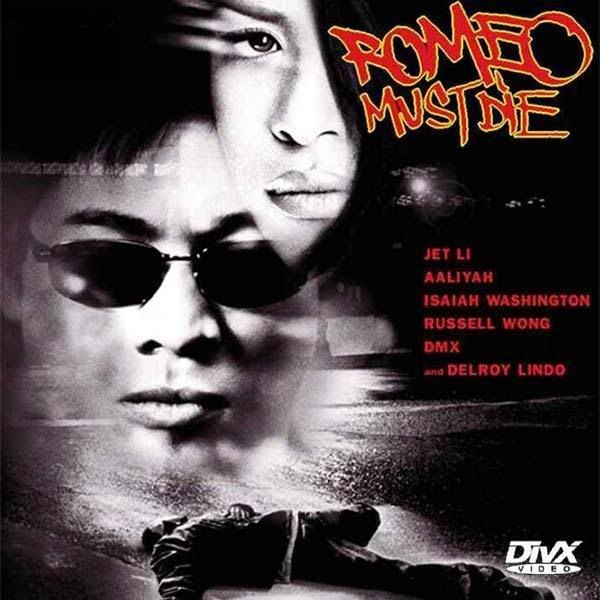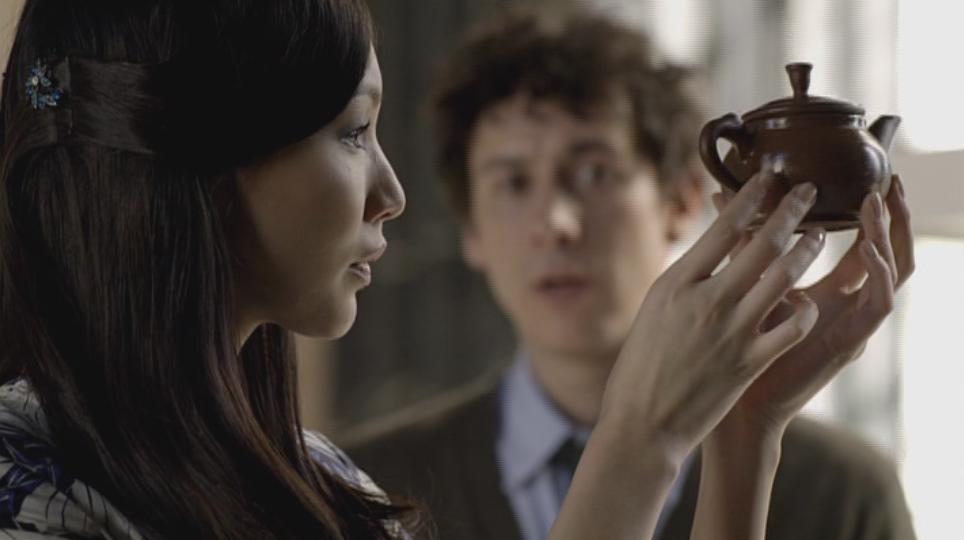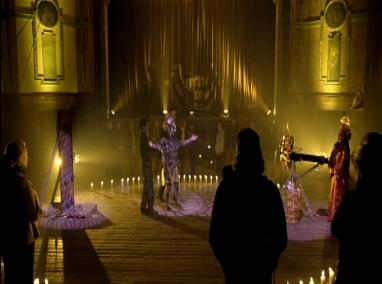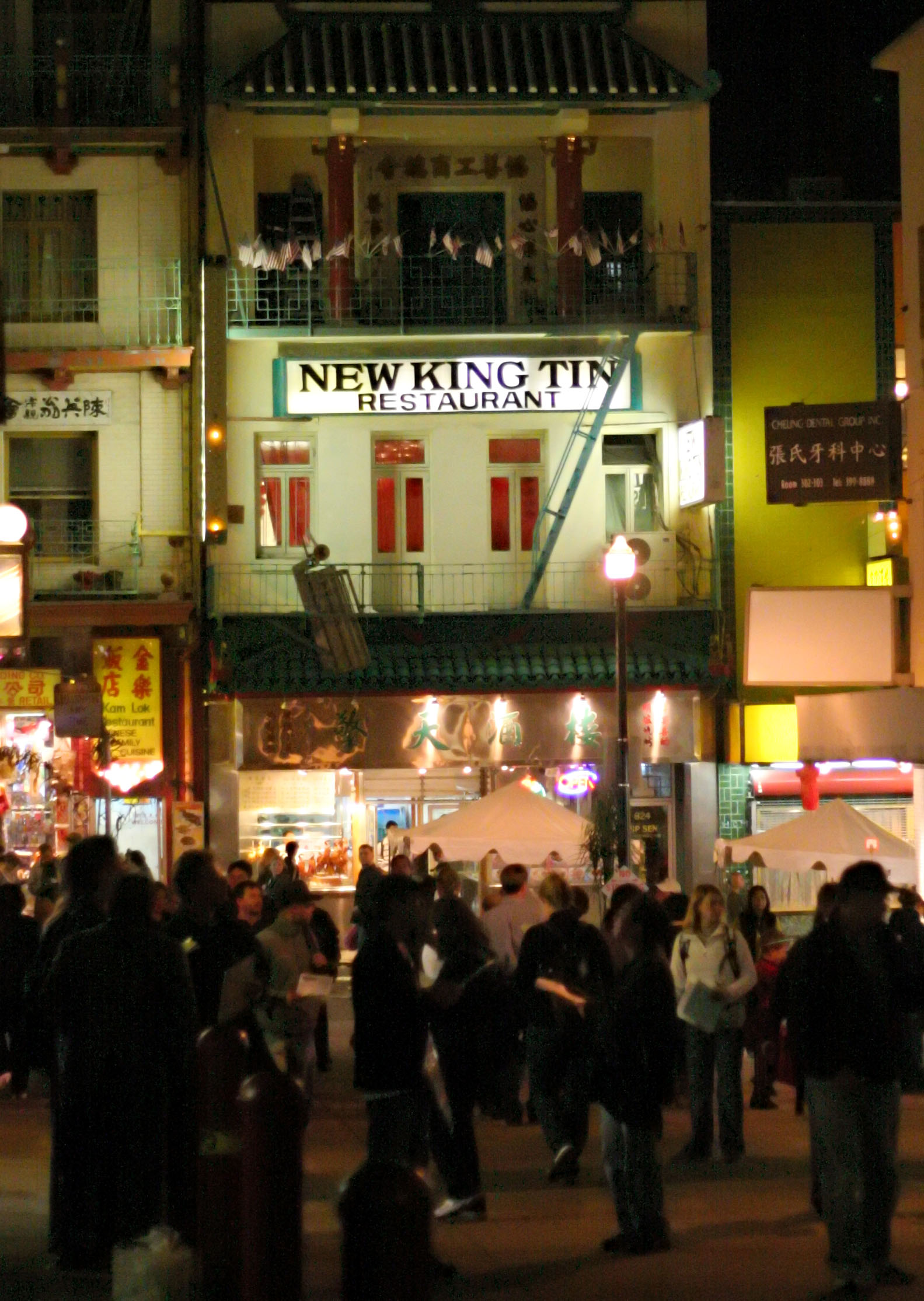Like all good (cough) teenagers, I have seen both The Hangover and The Hangover 2. And yeah, they were funny. Funny whenever Ken Jeong wasn't onscreen.
The Hangover (first one) was a very funny movie. The writers were very clever in taking the three protagonists out of the Wild Night and putting them in the horror of the next day. However, I think that the movie could have worked very well without the character of Mr. Chow or even without the performance by Ken Jeong.
Yeah. Mr. Chow is the weirdest portrayal of an Asian that I have ever seen. And none of it is funny. He's a kind of Fu Manchu stereotype because he's quite threatening and he does kidnap and is an international crime kingpin - but he isn't a Fu Manchu because he's... well, he's supposed to be comedic. He's also not going to rape all the white women - he'll probably assault some squeaky white males with a crowbar first. Mr. Chow is some sort of Charlie Chan stereotype because he's rotund-ish and effeminate and supposed to be funny... He's also a bit of a Jackie Chan stereotype because he kicks Alan/Stu/Phil's butts in Hangover 2 while being weird and slapstick and obnoxious. So what is he?
I suppose he's the vulgar version of Slim Chin. Which is just as, if not more painful. Oddly reminiscent of Long Duk Dong as well.
So. What exactly does Mr. Chow do that is so terrible and painful to watch? Well... he frequently mispronounces words with that typical Asian accent. You know, "Engrish." "Lun away." You know. Read the script of both Hangovers and replace every "l" with and "r" when Mr. Chow speaks. Cheap and overused stereotype? You betcha. Hath Ken Jeong no shame?
He makes up strange, "Asian-sounding-Asian-language" verbal commands for his henchmen (Henchmen! What is this, The Mask of Fu Manchu?!)
Also damaging is Mr. Chow's highly vulgar vernacular (alliteration!). While it is great to hear an Asian, normally portrayed as so demure and goody-goody, cursing like a sailor, there is a line that needs to be drawn. Perhaps the swearing streak was merely for over-the-top comedic effect. Who knows? I certainly thought it was too much... his constant streams of curses just pushed it too far.
There's also the issue that Mr. Chow is as effeminate as... the most effeminate thing you can think of. Jeong's portrayal also pokes fun at gay people - wow, managing to offend two minority groups at once! Fantastic! (Sarcasm done) The vulgarity earns big yuks, of course. Constant male genitalia jokes, you know. There's the issue of him running around stark naked all the time. There's the issue of him beating up people with crowbars. It's just... too much. Too much. It goes beyond being mildly humorous to being incredibly offensive and difficult to watch. Not sure that was what the writers and directors were aiming for (who, by the way, are middle-aged Caucasian males)...
So. What exactly does Mr. Chow do that is so terrible and painful to watch? Well... he frequently mispronounces words with that typical Asian accent. You know, "Engrish." "Lun away." You know. Read the script of both Hangovers and replace every "l" with and "r" when Mr. Chow speaks. Cheap and overused stereotype? You betcha. Hath Ken Jeong no shame?
He makes up strange, "Asian-sounding-Asian-language" verbal commands for his henchmen (Henchmen! What is this, The Mask of Fu Manchu?!)
Also damaging is Mr. Chow's highly vulgar vernacular (alliteration!). While it is great to hear an Asian, normally portrayed as so demure and goody-goody, cursing like a sailor, there is a line that needs to be drawn. Perhaps the swearing streak was merely for over-the-top comedic effect. Who knows? I certainly thought it was too much... his constant streams of curses just pushed it too far.
There's also the issue that Mr. Chow is as effeminate as... the most effeminate thing you can think of. Jeong's portrayal also pokes fun at gay people - wow, managing to offend two minority groups at once! Fantastic! (Sarcasm done) The vulgarity earns big yuks, of course. Constant male genitalia jokes, you know. There's the issue of him running around stark naked all the time. There's the issue of him beating up people with crowbars. It's just... too much. Too much. It goes beyond being mildly humorous to being incredibly offensive and difficult to watch. Not sure that was what the writers and directors were aiming for (who, by the way, are middle-aged Caucasian males)...
The most painful part about the whole Hangover franchise is that I hear more people quoting Mr. Chow's lines than any other funny lines in the whole movie. I hear more people talking about "that hysterical Asian asshole." Mm. Lovely. Of course, both Hangover movies poke fun at all types of people - women, people of color, old people, babies, harmless monks... It's just that the character of Mr. Chow is based on cheap, degrading stereotypes that are horrifying to watch. It's completely based on the stereotypes that have been around since Asians have been appearing in films - in other words, not progressive at all. In addition, the only characters that are not made fun of extensively are upper-middle-class Caucasian males - which isn't really a departure from certain trends in Hollywood... Disappointment abounds.
Ken Jeong's big-screen debut was actually in Knocked Up, where he played a doctor (and oh my LOLs, he's a doctor in real life).
This scene is actually pretty funny. Wanna know why? I don't have to listen to some fabricated and screeching accent a la Leslie Chow. In fact, this scene proves that Ken Jeong does not have an accent - so why did he adopt one for both Hangovers? I'm currently tearing my hair out in frustration.
Basically, the character of Mr. Chow is the next Charlie Chan stereotype. The Charlie Chan of our generation. He was created only for this movie and already an ad campaign used the exact same formula to sell a product. He'll last forever and people will love him - and a few generations from now, people will be frantically trying to erase and move beyond him.
The one thing that I am very grateful for is that both Hangovers were rated R. Which means, unlike the character of Long Duk Dong, desperate pleas for Mr. Chow imitations will not be heard on elementary school playgrounds at all. Asian-American children will not be asked to yell, "Toodaroo mothafucka!" or something like that.
Jeong's portrayal of an effeminate and dangerous FOB, exorbitant use of profanity, and horrendous accent crossed the line. It was never a positive portrayal of an Asian to begin with, and it got more and more offensive as the movie went on. Sadly, it looks like Mr. Chow and his henchmen are here to stay, possibly spawning several more rip-offs before the year is through.











